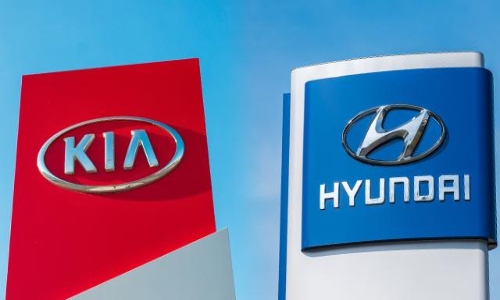No driving lessons for Corporate Communications?
By Joel Indrupati
The business world is seeing yet another controversy. The corporate communications of Hyundai and Kia, in Pakistan, seem to have gone completely off the road.
They have driven their futures onto dangerous terrains. And now, steering the reputations of these companies back on track – at least in India - would be an extremely bumpy and uphill task.
There was absolutely no need for Hyundai Pakistan with twitter handle @HyundaiPakistan, and for Kia Motors Crossroads – Hyderabad, also of Pakistan, with twitter handle @KiaCrossroads, to make any political statements.
But, they did. They posted, on Saturday, 5 February, support for the liberation of Kashmir, on their social media accounts. And, obviously, these postings didn’t go well with India, which always maintained that Kashmir is a part of India. Now, the trending hashtag in India is #BoycottHyundai.
The words #Kia and #Hyundai had nearly 300 tweets in just one hour, on Monday afternoon, with Indians lambasting Hyundai and Kia for their direct affront to the Indian stance on the Kashmir issue. The contentious topic has now suddenly shaken and stirred a nation into anger.
The Hyundai and Kia posts are now deleted from their respective social media accounts. But, it’s too late. The screenshots are floating in cyberspace and Indian netizens are vociferously calling for a boycott of these Korean vehicles. I have seen a post of a man who said he has cancelled his Hyundai Verna’s booking and bought a Honda City in its place.
He posted a picture of his receiving Honda City, in the car showroom, for the entire world to see. And he is exhorting people to boycott Hyundai, like thousands of others.
Hyundai, of course, swung into the damage-control mode. On Sunday, Hyundai India issued a public statement saying that they are “committed to the Indian market” and that they have “zero tolerance towards insensitive communication”. But this communication itself was insensitive.
There was no ‘sorry’ or ‘apology’, or any synonyms of these words, in their Sunday statement. Needless to say, Indian politicians and citizens angrily said that all they wanted was a simple and straight ‘sorry’. Not some circular driving around a verbal roundabout.
Seeing public anger rise, even more, Hyundai issued yet another statement on Tuesday, saying it was their independently-owned distributor who made this unauthorized posting. “As a business policy, Hyundai Motor Company does not comment on political or religious issues in any specific region. We deeply regret any offence caused to the people of India by this unofficial social media activity.”
That they “deeply regret” those social media posts is an important point. After all, Hyundai is the second-largest car manufacturer in India; and was hoping to get a good chunk of India’s electric vehicles market in the near future.
With India poised to become the world’s third-largest automotive market in terms of volume by 2026, with some 22.7 million vehicles manufactured per year, it’s not something any auto manufacturer can ignore. When it comes to Hyundai cars alone, 635,413 units were sold in India in 2021 which was 21.6% higher than what was sold in 2020 (‘Hyundai observes double-digit sales growth in 2021, expects growth to continue, Hindustan Times, 2 Jan 2022).
But in Pakistan, only 8141 Hyundai units were sold in 2021. But it was a 413% jump over the previous year! (‘Hyundai Car Sales Increased By 413% in 2021’, pakwheels.com, 23 Dec 2021) Some excited marketing staff of Hyundai Pakistan must have thought of releasing some feel-good posts.
But they have put Hyundai Global and Hyundai India on a dangerous collision course. These days, when the speed of communication is competing with the speed of light, it is important for organizations to think before they post on social media.
Leaving a company’s social media accounts in the hands of novices, who are high on emotional expressions but low on rational analysis, could also be dangerous. It is even more important for private corporate bodies to steer clear of political and religious leanings.
Why drive into murky mud, and splash disrepute all over, when we can smoothly cruise on safe roads, avoiding political potholes? Ignoring danger signs and driving into communications, thinking we are too bold and too fast could be dangerous. Applying brakes may not help prevent the crash. It may be too late.
Joel Indrupati
Related Posts


